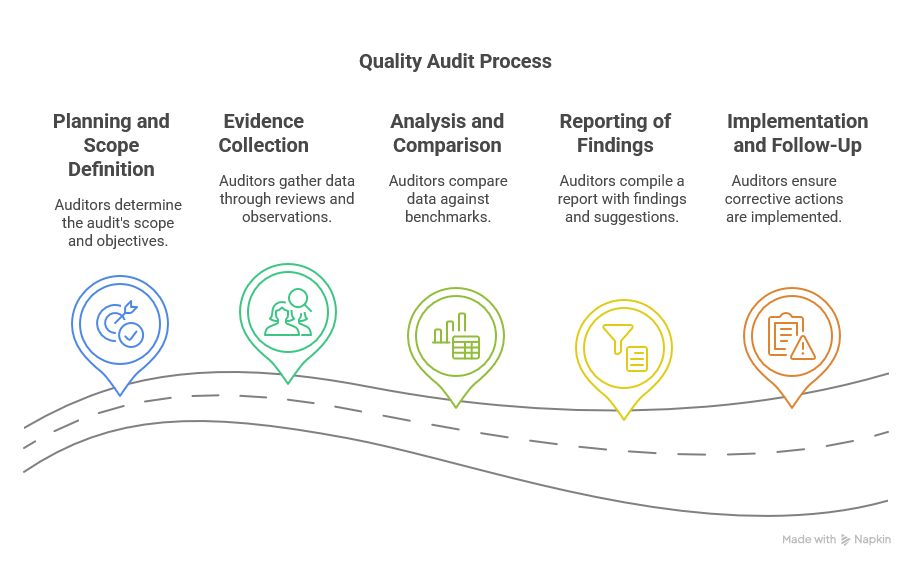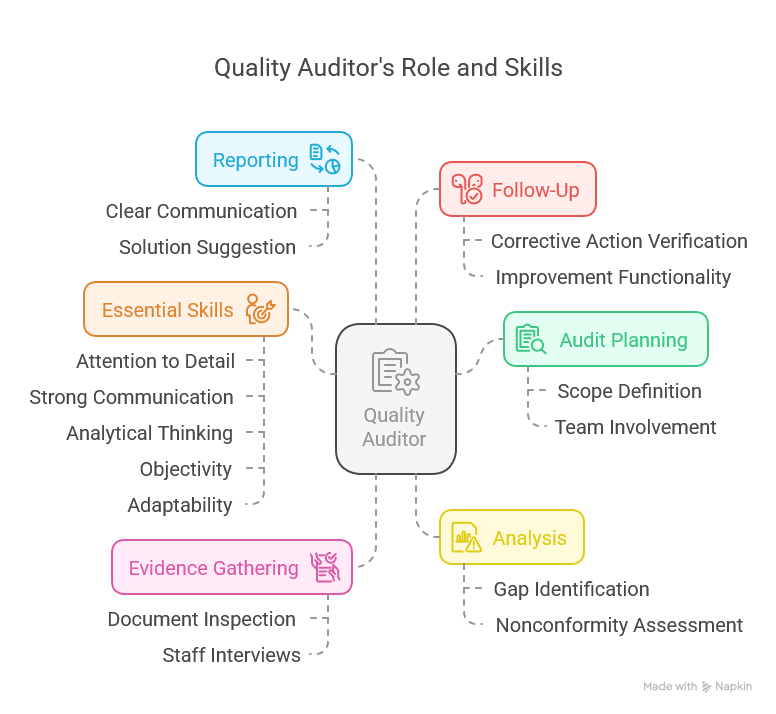Aspiring auditors often face a flood of choices regarding what formal credential to pursue. With multiple training providers offering certificate or diploma programs, it can be hard to decide which path leads to the best outcomes. This article zeroes in on the BSB50920 Diploma of Quality Auditing and other prominent options, weighing their pros and cons to help you determine which qualification might fit your goals. Whether you want a broad-based program, specialised training, or an internationally recognised certification, having a solid understanding of the market is the first step toward making a confident choice.
Why Qualifications Matter
A structured program covering auditing techniques, standards, and ethical considerations can fast-track your professional development. While on-the-job learning is valuable, formal education provides a cohesive framework that fills knowledge gaps and boosts your credibility with employers. It also signals that you meet a nationally or internationally benchmarked level of proficiency, which can be an asset in a competitive job market.
Diploma vs. Certificate
In Australia, a common debate revolves around whether you should enrol in a certificate-level course or opt for a diploma. Certificate programs, such as Certificate IV in Quality Auditing, often serve as an introduction. They're shorter and can be cost-effective for those who need an overview or want to dip their toes in the auditing world. However, these courses might not delve deeply into leadership, risk management, or advanced auditing methodologies.
Conversely, the BSB50920 Diploma of Quality Auditing offers a more comprehensive curriculum. It goes beyond the basics, covering how to plan complex audits, manage team dynamics, and implement continuous improvement strategies. This diploma is frequently cited as a robust option for anyone serious about a long-term auditing career, especially in regulated industries. While it requires a greater time and financial investment than a certificate, many students find that the depth of knowledge and the enhanced career prospects justify the cost.

Industry-Specific Certifications
Some Australian industries rely on tailored courses. In construction, for instance, you might come across specialised training that addresses national building codes or safety standards. Healthcare auditors might focus on frameworks established by bodies like the Australian Commission on Safety and Quality in Health Care (ACSQHC). These targeted programs can make you extremely valuable in a particular field but might lack the versatility of a more general qualification, like the Diploma of Quality Auditing. If you already have a clear industry focus, a specialised path could complement your broader qualifications.
International Certifications
Individuals who plan to work with multinational firms or overseas clients sometimes explore international certifications such as ISO 9001 Lead Auditor qualifications. While these are not strictly "Australian" credentials, they can bolster your employability. Many local employers appreciate the global perspective that international standards bring, but if you're primarily Australia-focused, you might benefit more from an Australian-recognised diploma that aligns closely with national regulations.
Comparing Program Delivery Modes
Different learning formats can also influence which qualification is "best" for you. If you're juggling full-time work, an online or blended program might be your only viable option. The BSB50920 Diploma of Quality Auditing is commonly offered in formats that accommodate working adults, making it a strong candidate if you need flexibility. Some programs also feature weekend workshops or short intensive sessions that fit better with professional schedules.
Evaluating RTOs
Beyond the qualification title, the choice of Registered Training Organisation (RTO) can make a significant difference. Reputable RTOs will:
- Offer trainers with real-world auditing experience.
- Provide up-to-date course materials that reflect changing regulations.
- Include practical assessments that simulate real audit scenarios.
- Maintain strong industry connections, which can help with networking or job placement.
Before you commit to any program, read reviews or talk to former students if possible. This can give you a sense of how effectively an RTO delivers content, manages assessments, and supports learners throughout their studies.
Cost Considerations
Cost is often a deciding factor when comparing quality auditing courses. Diploma programs typically run higher in tuition than certificate courses, although various funding options may be available for eligible students. Payment plans or government subsidies can make a diploma-level qualification more attainable. Given that a diploma can offer broader career doors, some learners see it as a wise long-term investment.
Employer Expectations
Another angle to explore is what local employers prefer. Checking job ads or speaking with industry contacts can reveal whether a certain certification is widely sought after. Many Australian companies, especially those operating in regulated spaces, explicitly list the BSB50920 Diploma of Quality Auditing (or equivalent) as a desirable qualification for auditing roles. In some cases, they might also require relevant workplace experience, but having the diploma at least meets the formal requirement.

Career Progression
Selecting the best qualification often depends on your career timeline. If you're brand new to auditing, a foundational course can provide quick insights. If you already work in compliance and plan to become a lead auditor, a diploma or advanced diploma could be more suitable. Over the long term, the deeper your credentials, the more likely you can progress into roles like Compliance Manager or Quality Assurance Manager. Certain programs also lay out credit pathways to higher education, which can be handy if you later decide to pursue a degree in business or management.
Making Your Decision
To choose the right qualification:
1. Clarify your goals
Are you seeking a comprehensive auditing career or just need a baseline introduction?
2. Research courses
Compare content outlines, tuition fees, and delivery modes.
3. Assess your schedule
Factor in work, family commitments, or other personal obligations.
4. Seek industry feedback
Talk to mentors, join forums, or attend professional events.
5. Look for flexibility
Many RTOs allow you to study part-time or online.
6. Plan finances
Explore scholarship opportunities or payment plans if necessary.
By following these steps, you can pinpoint which course offers the best alignment with your aspirations and circumstances.
Common Pitfalls to Avoid
Choosing a qualification simply because it's shorter or cheaper can be a mistake if it doesn't deliver the depth you need. Another pitfall is ignoring the reputation of the training provider. Even if two RTOs offer the same course, their quality of instruction, student support, and industry connections might vary widely. Additionally, some learners forget to factor in the time for practical experience or projects, leading to frustration if the course demands more effort than anticipated.
Defining the "best" qualification for quality auditing often hinges on personal goals, the industry you aim to serve, and your available resources. However, many professionals point to the BSB50920 Diploma of Quality Auditing as a solid, well-rounded choice. It blends theoretical insights with practical auditing skills, equipping graduates to navigate Australia's complex compliance landscape effectively.
Whether you opt for this diploma or another credential, doing your homework, assessing your long-term needs, and choosing a reputable training provider are the keys to setting a strong foundation.
Now that you've explored how to pick the best qualification for quality auditing in Australia, consider reading the main article on the BSB50920 Diploma of Quality Auditing for a broader context. If you're still weighing how you'd handle the challenges, check out the other sub-articles under "How Do I Become a Quality Auditor?" They cover everything from how challenging it is to break into the field to building a sustainable career path. Armed with the right knowledge, you'll be ready to take an informed step toward your professional goals.